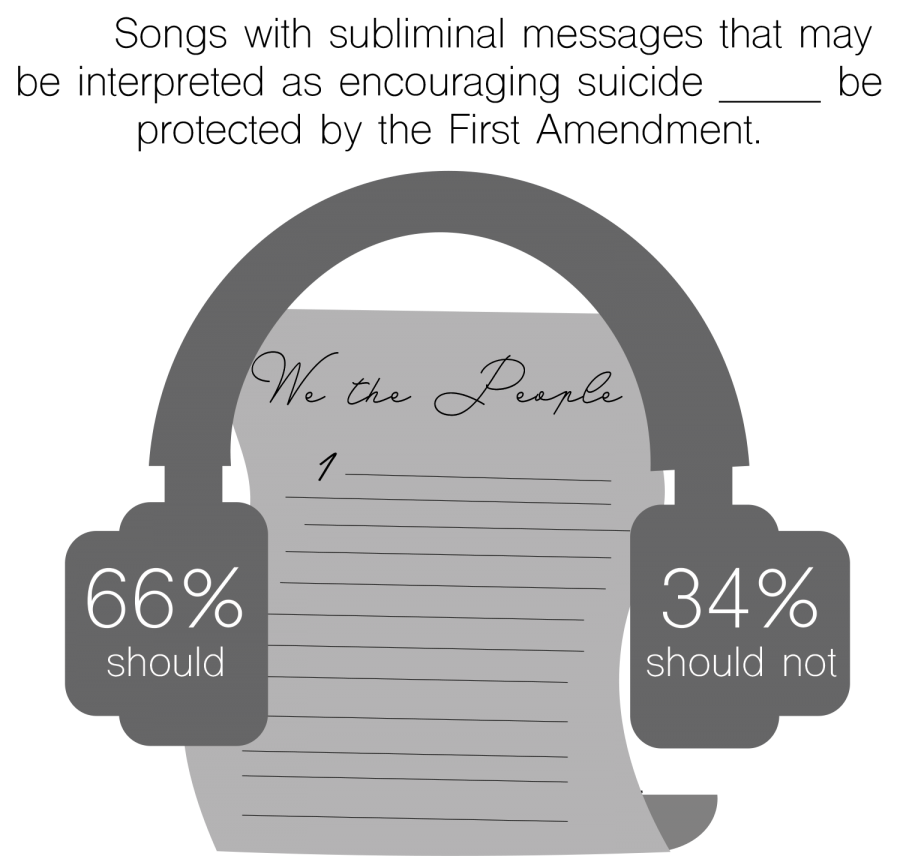Message of suicide in music sparks controvery
A survey of 47 students from Aug. 18 to Sep. 4.
September 13, 2019
On Oct. 26, 1984, 19-year-old John McCollum was found dead in his home from a self-inflicted gunshot wound while listening to Ozzy Osbourne’s album, “Blizzard of Oz.” With lyrics such as “Suicide is the only way out” and “Get the gun and try it,” his family alleged that one of the album’s songs, “Suicide Solution,” was the catalyst that drove McCullom to take his own life. In 1988, when McCollum’s parents sued Osbourne and his record label, the state of California dismissed the case, declaring that Osbourne’s song was protected under the First Amendment.
McCollum’s tragedy is not as uncommon as it may appear. On Dec. 23, 1985, two 19-year-old men from Nevada, James Vance and Raymond Belknap, shot themselves after listening to “Stained Class” by Judas Priest, according to the New York Times. Belknap died instantly, but Vance survived the attempt and later alleged that subliminal messages throughout the song encouraged the pair’s suicide pact.
Vance, along with Belknap’s family, sued the band and the record label but the charges were dropped once again due to an artist’s right to free speech. Some call into question whether songs with messages that could encourage suicide should be protected by the First Amendment, in hopes that artists will stop making and distributing music that could result in another tragedy like McCollum’s or Belknap’s.
“I believe that songs with subliminal messages [that could drive a listener to committing suicide] should not be protected by the First Amendment,” a CHS student who wished to remain anonymous said. “It is important for artists to have the right to free speech when making music, but it is also vital to protect listeners from being exposed to messages that may cause them to inflict self-harm, despite the original intentions of the artist.”
Junior Melody Lin of Freehold said she believes that songs with subliminal messages that could drive a listener to commit suicide should remain protected by free speech, in order to prevent an artist from being held accountable for a situation that is out of their control.
“I’d say that the topic of suicide should be protected under the first amendment but it should be highly discouraged,” Lin said. “However, I think the encouragement of suicide should possibly get its own law to prevent it from being spread, especially to impressionable young people.”





